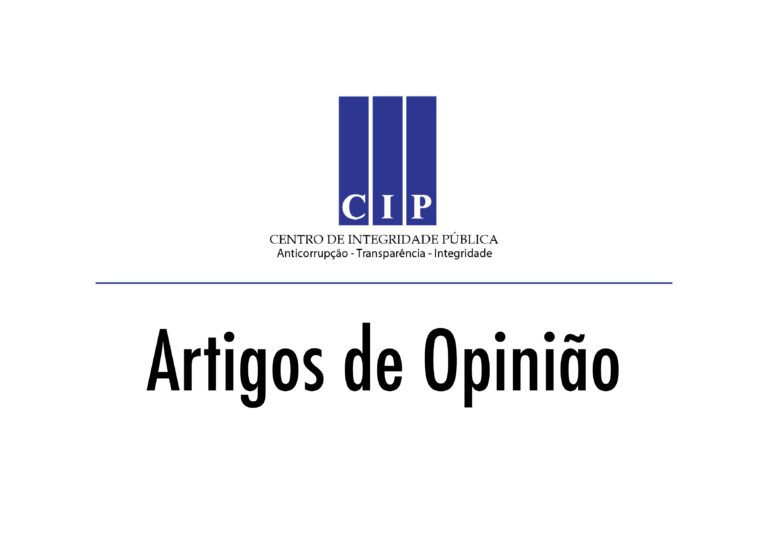
For several years, there has been a very low level of recovery of assets diverted by corruption and related crimes in Mozambique, mainly those of an economic-financial nature. In the recent past, the Attorney General's Office has systematically been demanding the need for a law to be drafted and approved to make the asset recovery process more effective. In 2021, the law in question was approved by the Assembly of the Republic (Law No. 13/2020, of 23 December – Law on Extended Loss of Assets, Recovery and Management of Assets in Favor of the State). Thus, the specific legal instrument, which was claimed and whose lack served to justify the very low level of asset recovery, already exists and is in force.
This very important step in the fight against corruption removes the excuse for making it impossible to increase the volume of recovery of assets illegally diverted from public coffers. It is because, in modern times, for the fight against corruption to be effective, it is necessary that the agents of this legal type of crime and related offenses be deprived of the product or advantage that, directly or indirectly, they have benefited from, as well as its fruits, the which presupposes an effective legal asset recovery regime.
In addition to the existence of a specific law, it is important that investigation mechanisms be improved in order to make the asset recovery process effective. Therefore, if the investigation aimed at punishing the agents of crime and recovering the illegally embezzled assets presents weaknesses, the law in question will become a mere decorative instrument in the Mozambican legal landscape.
In this sense, the creation of two specialized offices, namely: one to recover assets and the other to manage them; it is another very important step to make effective the broad and complex process related to the identification, seizure, confiscation and forwarding of assets to the office responsible for its administration/management.
In this sense, it is essential that these two offices are composed of specialists/experts in different areas, so that, in practical terms, satisfactory results can be obtained and that they contribute to deter potential agents of corruption and related crimes from getting involved in their practice. . An efficient and effective asset recovery would also serve to show crime agents that their practice does not pay, given that, in addition to asset recovery, they must be deprived of freedom.
The Central Office for Combating Corruption (GCCC), through its spokesperson, informed that the crime of embezzlement of public funds caused great damage in 2020, because of the weakness of social infrastructure, exacerbated by the context of Covid-19, making with that in the year in question, the State was injured in about 1. 3 billion Meticais. There is no doubt that the actions, mainly by the Asset Recovery Office, are crucial to reduce the “gap” between the amounts diverted and those actually recovered1. From the diverted amount, the amount that will have been recovered was not mentioned.
In this sense, it is important to mention that 2021 will be a decisive year to test whether the low level of asset recovery was caused by the lack of a specific law for this purpose, or if there are other reasons that justify the failure observed so far. It is up to the Government to create the necessary conditions for the two offices mentioned above to function properly.
Alea Jacta Est, ie the dice are rolled. Now it is necessary to produce results that confirm, until now, the theory that the lack of a specific asset recovery law was the main obstacle to the reduced number of assets and assets recovered.
PS - Special attention in the process leading to the recovery of assets should be given to the crime of money laundering, given that the embezzled goods end up being laundered, often even abroad, which will require this office to resort to the principles and procedures of cooperation legal and judicial international law in criminal matters, already provided for in Law No. 21/2019, of 11 November.

